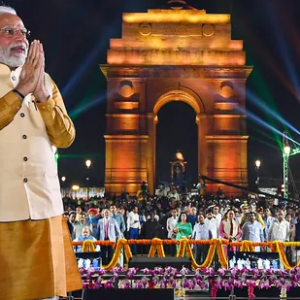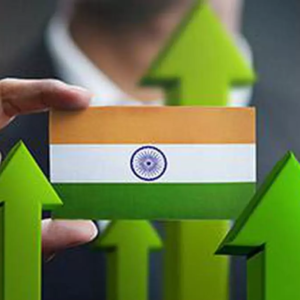Author: Ayaan Hirsi Ali
Publishers: Harper
Year of Publishing: February 2021
Book Review by: B. Shruti Rao
Ayaan Hirsi Ali’s recently published book Prey: Immigration, Islam, and the Erosion of Women’s Rights is a valorous and timely book. It addresses the abasement of the feminist movement and gender equality in European nations as an inevitable fallout of the European migration crisis.
An interesting watershed movement that Ali identifies is German Chancellor Merkel’s movement of weakness in a July 2015 press conference where she was confronted with a despondent Palestinian refugee whose family was about to face deportation. Following the event, Merkel unpreparedly (as Ali proves) announced Germany’s Open Border Policy for refugees, declaring “We can manage that”. According to Ali, this virtue signalling move largely rooted in the German desire for the atonement of past sins ‘has done the most harm to (the status of) European women in her lifetime, (and was ironically) made by a woman’.
In 2015 alone, close to 2 million people, mainly men, arrived in western European nations from Syria, Afghanistan, Iraq, Pakistan, Nigeria, and other countries with large Muslim populations. Since 2009 more than 3 million have been living as illegal entrants and asylum seekers in western Europe. Author Ali, through her own painstaking research and the work of many European social scientists, lays bare the fact that this deluge of millions of young, male Muslims has clearly led to a drastic rise in cases of sexual assaults, rapes, and public harassment of women in large parts of the continent. The obvious argument of correlation does not imply causation is powerfully addressed by her research. The repertoire of work that Ali refers to while making this serious claim reveals the scale and the intensity of research work carried out in Europe on cultural, religious, political and legal differences that have led to this disparate sense of values in immigrants. India in many ways, situated in a difficult neighbourhood, suffers from similar inflows which have and will continue to have long term demographic, cultural and even electoral consequences. Yet, these issues have barely perturbed the minds of the Indian intelligentsia and attempts to arrest these developments through policies have met with great political resistance and opprobrium, domestically and abroad. Abetting this short-sighted activism is the 21st century Dhritarashtra of India, the Indian academia which continues to remain in denial.
The dangers posed by such denial is predicted well by the European case study. Ayaan Hirsi Ali contends it is this very denial of the inherent misogyny and disdain for liberal values in certain cultures that has led to the erosion of the gains made towards women’s right in western nations. She highlights how even talking about violence by Muslim men against European women is unfashionable in an age of identity politics, when everyone is expected to “operate within a partly historical matrix of victimhood”. Consequently, the idea of imposing liberal values on the Muslim world is being construed as a form of neo-colonialism. As Ali reveals, this guilt has become so entrenched that European victims of sexual assault even make excuses for their attackers. Afraid of being branded racist, these women strike an apologetic tone on behalf of those who assaulted them. At the same time, to serve their politics, European politicians play down the threat, sometimes even making excuses for criminal behaviour. In the name of respecting cultural norms, judges hand out light sentences to these perpetrators and the European media self-censors reporting to avoid stoking racial and religious tensions.
Such guilt-ridden sensitivities towards multiculturalism and intersectionality come at a great cost to the west. Western societies have taken for granted their achievement in creating liberal societies that offer the highest level of emancipation to citizens and sexual self-determination to women in modern history. By not recognising that some cultures are yet to fully embrace modern liberal values, and adopting an unquestioning attitude towards the undertones of religious and political misogyny in them, the west seems to be undermining its own values in the name of equality.
Ideas of liberalism, emanating from the west and decades of single-minded activism towards gender equality has produced the language, legal systems, and discourses that significantly improved the position of women in these western countries. Many cultures and societies have overtime recognised the superiority of these ideas and have made wholehearted attempts at emulation. As research proves immigrants from these cultures find it easier to integrate into western societies and make positive contributions.
Ali reveals that the socio-political and religious arrangements in Muslim communities have insulated generations of immigrants from liberal ideas, and consequently they not only resist but also challenge the way of life in their host countries. The most egregious challenge they pose is to the liberated common women of the west who increasingly have to cede access to public spaces, and have to censor their sartorial and self-expression choices in a trade-off for personal safety. The victims of such anachronistic restrictions long rejected in the west are not only European women but also Jews, members of the LGBTQ community and women from the immigrant communities. Yet their plight fails to arouse similar outcry as the more fashionable #metoo cases since most victims of sexual violence perpetrated by the illegal migrants belong to the lower rungs of the social echelons, low-income neighbourhoods, and small towns in Europe. Ali writes that it is in these neighbourhoods where failure to integrate immigrants into the legal and cultural system of the West has created segregated parallel societies where religious dogmas, victimhood, and sexist behaviour are perpetuated generation on generation.
Ayaan Hirsi Ali makes several such observations that expose the hypocrisy of our times. Her book Prey has been written at great risk to her personal safety and professional standing. The statistics she reports are staggering and make one wonder how the west has been able to keep them undercover for so long. The only saving grace has been the democratic system where citizens can cast their votes in anonymity to political parties that offer protection from unchecked immigration. UK (Brexit), Sweden, Germany, France, Italy, Netherlands, Hungary, Austria, Belgium are a few nations where immigration has become the central issue in national elections.
She is herself a Somali born asylum seeker to the Netherland and has experienced life on both sides of the border. Loyal to her classical liberal values, she desires open borders and greater freedoms for which effective integration of immigrants is indispensable. Towards that her book makes several policy suggestions that must be taken seriously by policymakers even in India not just for immigrants but also for the integration of segregated parallel communities.
The book is both poignant and prophetic. The problems exposed by Ali are not alien to the Indian society. Just like Europe, anyone in India who seeks to discuss these issues in a serious fashion is almost certain to be accused of xenophobia, bigotry and of legitimizing alt-right politics. Even beyond Islam and immigration, diversity in India has led to the existence of communities with a broad range of personal freedoms for women and sensitivities about gender equality. Our laws and public discourse must quickly recognise the problems that come with cultural relativism which allows all of these disparate cultures to be put on the same pedestal.
Allowing religious personal laws that promote sexist practices and education systems that might lead to the radicalisation of young ones in the name of multiculturalism has to stop. Indian state must strengthen its commitment to gender equality and introduce gender and sex education through the education system. Discourse on Indian feminism must permeate the larger society and unlike the west, it should not be held hostage by a few gender studies departments populated by those who have little to do with ground realities.
Interestingly, research quoted in the book has brought out that in western nations men of the Indian diaspora not only outperform the natives in education, participation in the labour market and income but also have lower average crime rates. Indian men will do well to learn from their diasporic brethren.
(Brief Bio: Ms B. Shruti Rao is a part of the Yenching Scholars at Peking University. She is a Young India Fellow, Ashoka University and has previous work experience with India Foundation and PriceWaterhouseCoopers Bangalore)




Wonderfully curated Shruti. Irked me to go and dive deep into reading this marvelous piece. Good work. 👍